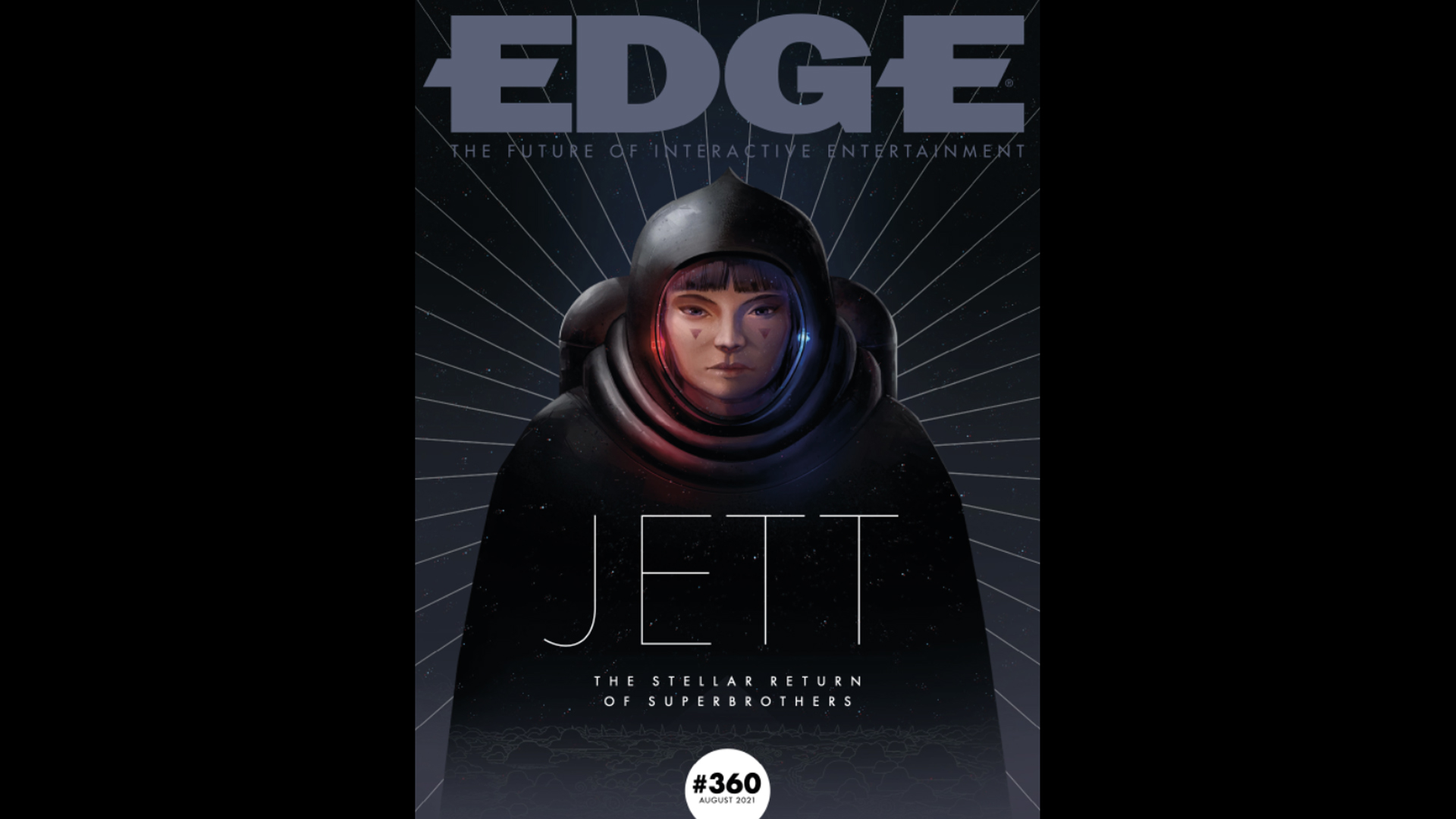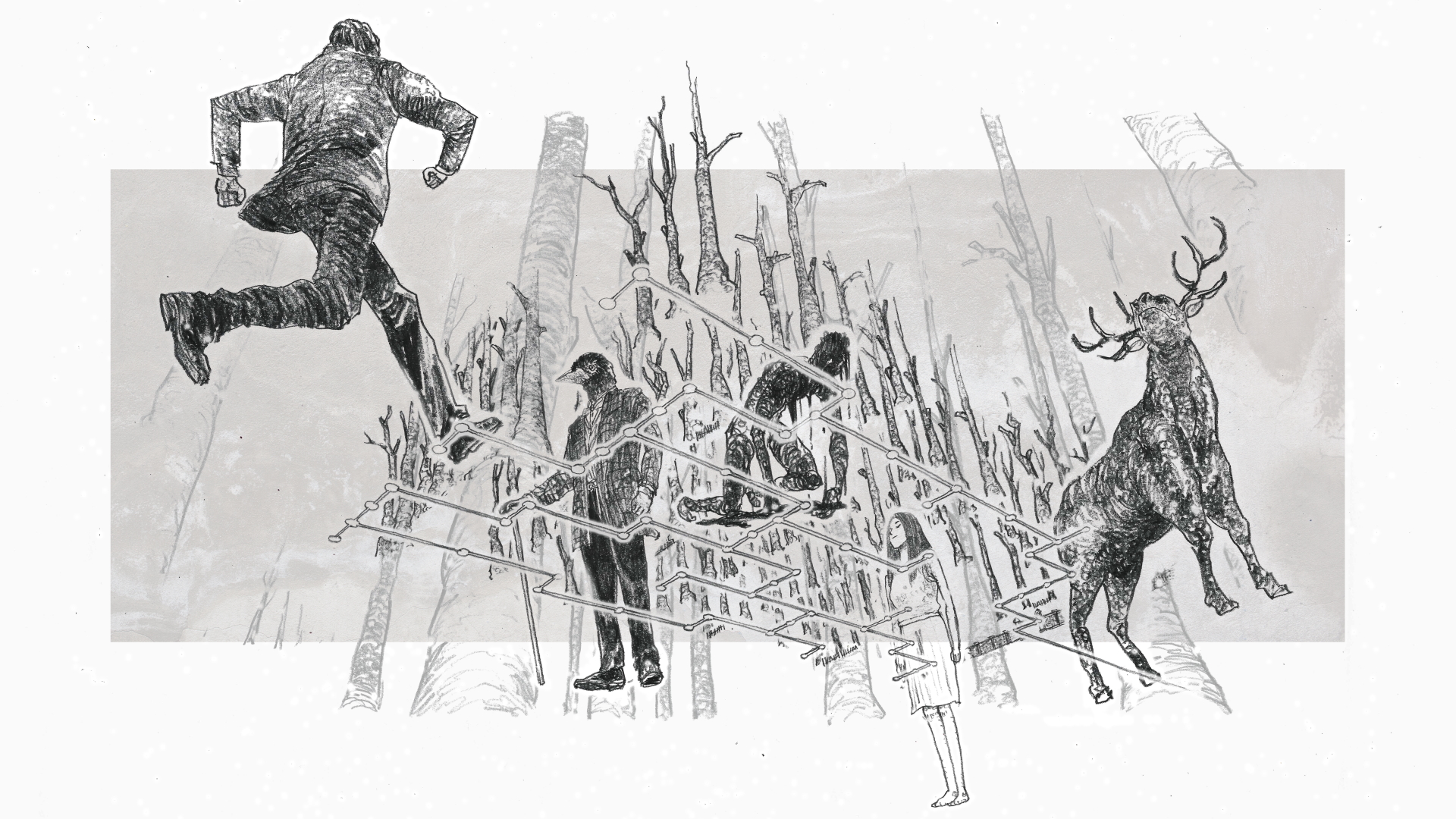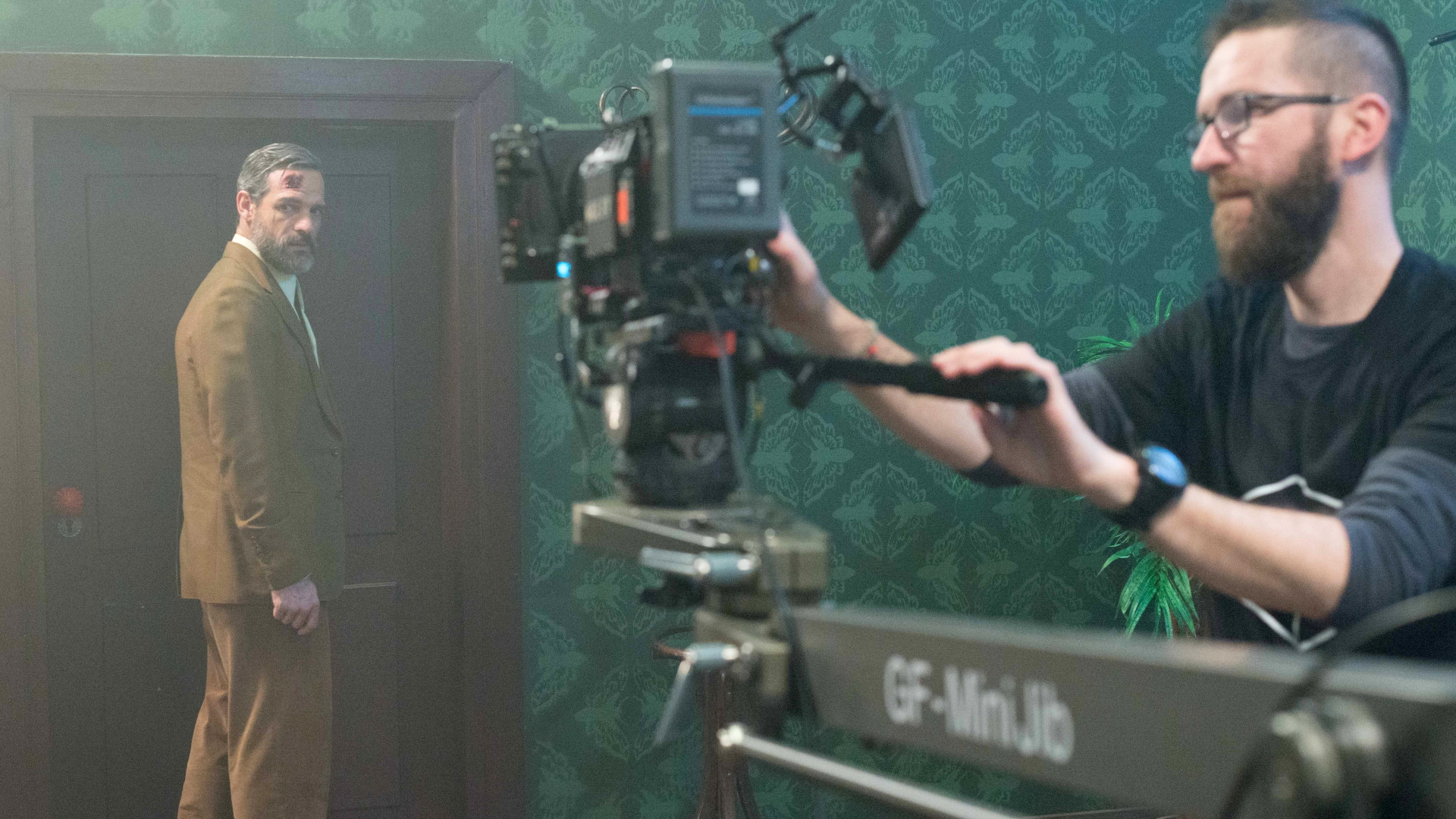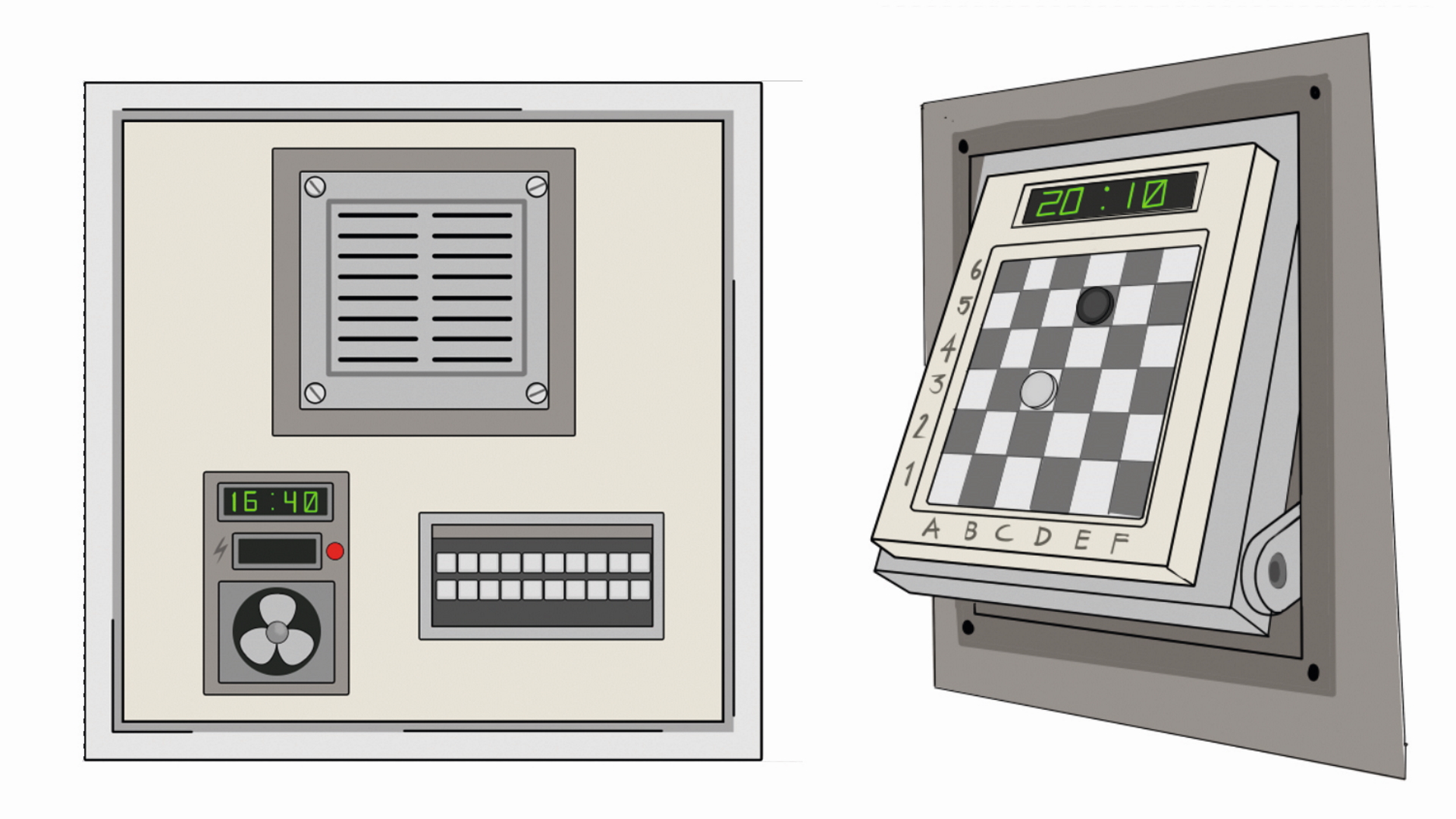After 15 games and a movie, Rusty Lake is indie gaming's answer to the MCU
Meet the game developers building their own connected universe

Connected universes have been taking over the pop-cultural landscape for the past decade but, early teases of Remedy's effort aside, the concept has yet to reach videogames. Part of the reason, no doubt, is that games are slow-moving behemoths even by cinematic standards, making it all but impossible to corral multiple projects. The solution, then, is simple: you just make 15 of the things, plus a short film and a graphic novel, in the space of six years.
This is exactly what Maarten Looise and Robin Ras have done with Rusty Lake – a name that can variously mean the studio they founded together, the games it produces, and the setting they all share.

If you want more great long-form games journalism like this every month, delivered straight to your doorstop or your inbox, why not subscribe to Edge here.
The decision to build their own universe was, at least in part, a pragmatic one. The pair come from a background making Flash games, which goes some way to explaining the pace of releases – Looise estimates that he'd released 50 games on portals such as Newgrounds and Kongregate before starting the studio. Meanwhile, Ras was learning to run portal sites of his own as a hobby, alongside studying for his law degree.
They met in the early 2010s, and began collaborating on news-based parody games, seizing on headlines as varied as Edward Snowden's NSA leaks and Prince Harry's naked sprint through a Las Vegas hotel. The resulting games were very simple, turned around in a matter of days to catch the limelight.
"Those games went viral quite often," Ras says. "They became a hit in the news, and it led a lot of visitors to our portal websites." But interest would quickly tail off and after making 15 games in this style, "we got to a point where we wanted to create our own games," Ras says. "Something that didn't depend on the temporary hype."
Ras was tired of having to promote every new game from scratch. "It was hard to keep the audience, to get them to the next game." The pair wanted to give fans of their previous titles a reason to play the next one, even if it wasn't a direct sequel or exactly the same style of game. Hence the connected universe.
The beginnings of a universe

It began with the simultaneous release of Cube Escape: Seasons and Cube Escape: The Lake, puzzle games that built on one of Looise's previous projects, Samsara Room. The format of each Cube Escape is roughly the same: you're trapped in a room, each of its four walls (and occasionally the ceiling) loaded with small puzzles to be solved and items to be grabbed and combined.
Weekly digests, tales from the communities you love, and more
If this sounds like the kind of thing you've done as a team-building exercise in a musty office-block basement, that's no coincidence: they share a common ancestor in the room escape games, such as Crimson Room and MOTAS, which proliferated on Flash portals in the early 2000s.
As physical escape rooms began to find popularity around the world, Ras and Looise saw an opportunity to capitalise on the hype, returning to the old Flash games and improving on them "with some fresh ideas".

The most compelling of these ideas is the setting of each game. In one, you might be playing as Vincent van Gogh in his Arles home; in the next, as a bird trapped inside a cardboard box. Even as the games hop across time and space, though, there are a few connecting threads. There's a central murder mystery and a cast of recurring characters, including a faceless malevolent spirit and the aforementioned bird (whose role in the ongoing story is important enough to inspire her own page on the Rusty Lake wiki).
These story elements aren't the only way Rusty Lake attempts to draw players from one game to another, either. Going back to that initial double release, Ras explains: "We connected both games with a code. You could find a code in Seasons to use in The Lake, and that unlocked a different ending. It made players realise that there was something bigger going on."
Making money

The first Cube Escape games arrived in April 2015. By the end of that year there were six of them, and Rusty Lake was preparing to take its next step. All the games so far had been released for free, in the hope of building an audience. "We thought, OK, this is working well, we have established a community of players," Ras says. "But we also saw right away, we cannot do this forever."
The games had won a few cash prizes on Kongregate, while mobile releases brought in a little ad revenue, but this wasn't enough to keep the studio afloat. "We didn't have a good business model at all," Ras admits.
Rusty Lake Hotel was the first game to bear the name of the studio and universe in its title, but more importantly it was Rusty Lake's first premium release. Effectively tying together six Cube Escape-style rooms into a single point-and-click adventure game, Hotel is significantly more substantial than everything that came before, but it's still a fairly slender project by the standards of most games – it was released in December 2015, eight months after the first Cube Escape, and just three months on from the most recent.
"We see a lot of developers working for a few years on one game," Looise says. "For us, that was not really possible." Taking that kind of gamble is simply too stressful, he says. "But because we did it in all those smaller steps, it was not so stressful for us."

Even today, though, there's a slight nervousness in the pair's voices when they talk about taking this leap, a sense of needing permission from their audience to charge for their games. And Hotel did take a few months to find any traction with players, eventually bolstered by another code crossover with Cube Escape: Birthday, a freebie released the following year.
Since then, Rusty Lake has bounced between free and premium games, continuing to foster a dedicated community even as the games' original home was demolished with the end of Flash – a slow fizzle that began in 2015, almost in step with Rusty Lake's debut, and was fully extinguished on New Year's Eve 2020. "In the old Flash days, you published a game and then it would spread over all these portals, so it could have millions of plays within a few days," Ras says. When it comes to getting your game noticed, he says, "I think that it's a bit harder nowadays."
The studio wasn't entirely caught out by Flash's closure, though. It had been releasing its games on mobile app stores from the start, Looise reckoning that they were a perfect fit "because they're so small and easily accessible for a lot of players". Rusty Lake expanded to Steam in 2016, the pair gaining confidence after a successful Greenlight campaign – "we were a bit surprised that people liked them on desktop, as premium games," Looise says – but the closest replacement they've found for the scene they both came up in is Itch.io. "We really like that platform," Ras says. "It has this old Flash game vibe around it – people are publishing games really easily."
Comics, films, and beyond

Throughout all these changes, what has sustained Rusty Lake is its fanbase. "From the beginning, we invested a lot in the community," Ras says – a lesson taken from his days running Flash portals – and they've been rewarded with reams of fan art and even the occasional tattoo. "That's something we never expected when we started Rusty Lake," Ras says. "It's sometimes crazy to see what the community make."
In the case of Hong Kong-based fan artist Lau Kwong Shing, those creations have entwined with the canon of the games themselves. "We became friends on the chat," Ras says. "At one point, he just sent us a comic-book version of Rusty Lake: Roots, and that blew our minds – you made this comic book out of nowhere?" It was enough to convince him and Looise to collaborate with the artist on their most ambitious project to date – 2018's Cube Escape: Paradox, a transmedia project which exists as a game, a comic book and a short film.
"Years ago, we'd joke about it sometimes," Looise says. "'Oh, and then we can do a Hollywood movie, and a TV show.'" Even after sitting down with director Sean van Leijenhorst, Looise remembers thinking: "Are we really going to do this? Because it was quite a big project, and it costs so much money, of course. But then we thought, why not?"

He and Ras covered half of the film's budget out of their own pockets, with the rest coming from a Kickstarter. The campaign reached the goal in just nine hours, and more than doubled it by the end of the month. It was long-awaited confirmation that fans were willing to put money into the Rusty Lake project – in one case, to the tune of €2,500.
This was the price of the campaign's biggest reward, a mask created for the film incarnation of Mr Crow (an anthropomorphic bird distinct from the one mentioned earlier). "It was bought by someone in China," Ras says. Postage was therefore an issue, but fortunately the pair were invited to a conference in Shanghai, and were able to fly the costume out with them in its own suitcase.
"Paradox helped us really grow," Ras says. "I'm not sure how, but after that we became more well-known than before." It tends to catch people's attention, we suggest, releasing an interconnected game and film. "I think it was quite an original thing to do, for a small indie developer," Looise admits, rather modestly.
Since then, the studio's ambitions have only continued to grow. It's currently working on The Past Within, which Ras says is "already our longest project". Development has been under way for two years – on and off, they clarify, but still a far cry from the quick turnarounds that Rusty Lake was built on. It started out as a return to their roots, a 3D remake of Samsara Room to help Looise learn Unity, as the studio was forced to abandon Flash, but it snowballed quickly.

The Past Within will be the studio's first foray into multiplayer, with one player in a 2D room while the other fiddles with a 3D puzzle box. The two are, naturally, part of the same world: both players are viewing the same cube, just from an inside or outside perspective – Rusty Lake never can resist the chance to connect two seemingly disparate settings.
The company is expanding too, having just gained its third permanent member of staff in community manager Andreea Bosgan. It's also moving into publishing through Second Maze, which allows the studio to release games, including ones it's made, outside of this shared universe. There's a sense of groundwork being laid. After all, the day must surely come when Rusty Lake, the studio, leaves Rusty Lake, the interconnected setting, behind for good.
"We are realistic that the universe might end one day – we don't want to make the same thing over and over again," Ras says. For now, though, there's still plenty of room to explore and loose ends to tie up, and Ras is grateful for the opportunity: "We never imagined we would come so far, and that our universe would expand in so many directions."
This feature first appeared in Edge magazine. For more like it, subscribe to Edge and get the magazine delivered straight to your door or to a digital device.
Alex is Edge's features editor, with a background writing about film, TV, technology, music, comics and of course videogames, contributing to publications such as PC Gamer, Official PlayStation Magazine and Polygon. In a previous life he was managing editor of Mobile Marketing Magazine. Spelunky and XCOM gave him a taste for permadeath that's still not sated, and he's been known to talk people's ears off about Dishonored, Prey and the general brilliance of Arkane's output. You can probably guess which forthcoming games are his most anticipated.



